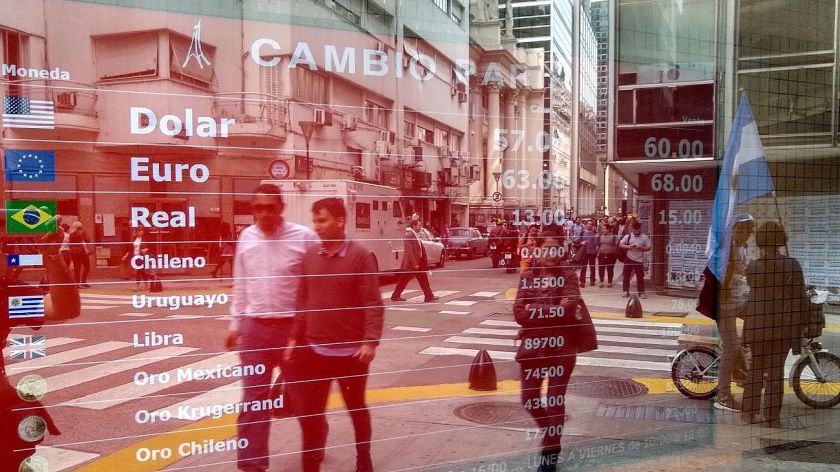Economy
Related: About this forumIn a dramatic policy about-face, Argentina's Macri decrees currency controls
Amid the worst economic crisis in nearly two decades and facing a likely default, Argentine President Mauricio Macri announced strict currency controls.
Today's decree limits dollar purchases (though not account withdrawals) to $10,000 monthly, establishes a system of permits for corporate and banking purchases, requires exporters to sell dollar earnings locally, and curtails the use of 'spot settlement' transactions - a popular method of skirting the last period of currency controls (2012-15).
The new policy, which follows an August 28 decree delaying payments on as much as $101 billion of debt, marks a dramatic about-face for "pro-business" President Mauricio Macri - who was narrowly elected in late 2015 on promises to scrap similar currency controls enacted by his center-left predecessor, former President Cristina Kirchner.
The unpopular measure, enacted by Mrs. Kirchner in response to a widening current account deficit as well as a loss of access to global credit markets due to a highly-publicized "vulture fund" dispute, depressed real estate sales (though not home values) and led to sharply lower growth.
Macri quickly deregulated finance and cut corporate (particularly export) taxes in a bid to attract foreign investment and revive sluggish growth.
Instead, public foreign debt more than doubled to $200 billion in just three years as dollars were borrowed to finance a carry-trade debt bubble known locally as the "financial bicycle" - by which outsized yields on peso-denominated notes were dollarized and wired offshore.
The April 2018 implosion of the "bicycle" effectively shut Argentina out of global credit markets, forcing Macri to seek a record, $57 billion bailout from the IMF.
The peso has since lost 68% of its value, with GDP down 6.9% despite a record harvest this year.
The prospect of account withdrawal limits similar to ones imposed in late 2001 that led to riots, have over the past two weeks prompted the withdrawal of $3.5 billion from banks and the loss of $12 billion in Central Bank reserves.
Wednesday's debt payment "reprofiling" has already strained finances at the social security fund, mutual funds, and many corporations - all of which earned sizable interest income from the affected short-term treasuries.
"There has never before been a default on peso-denominated debt," Claudio Belocopitt, CEO of Argentina's largest private hospital chain, Swiss Medical Group, noted.
"Reprofiling is just a new word they invented to keep from admitting they stole it all."
At: https://translate.google.com/translate?hl=en&tab=wT&sl=es&tl=en&u=https%3A%2F%2Fwww.pagina12.com.ar%2F215774-macri-termina-con-control-de-cambios
Pedestrians walk along a reflection from a currency exchange in Buenos Aires' financial district.
Today's currency control decree marks a dramatic policy reversal from the "pro-business" Macri, who widely deregulated finance within days of taking office in late 2015 in a bid to turn Buenos Aires into "another Panama City."
Instead, an estimated $75 billion left the country by using borrowed dollars to cash in outsized interest yields in pesos and then offshore the dollarized proceeds - a heist known locally as the "financial bicycle."
A previous financial bicycle bankrupted Argentina in 1981, after the dictatorship at the time enacted similar policies.
